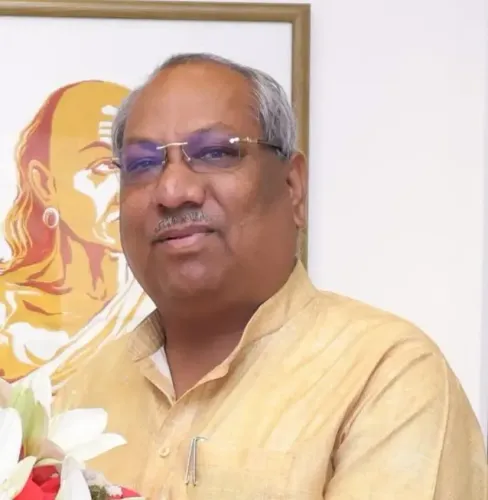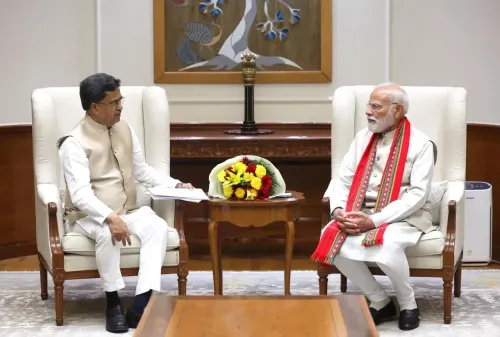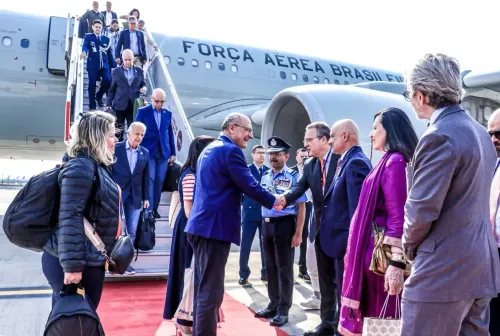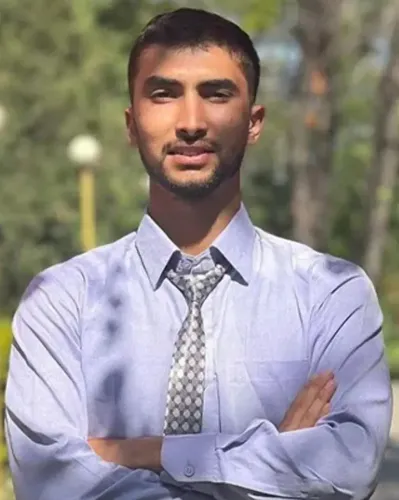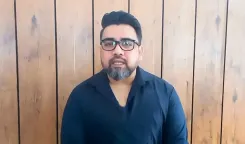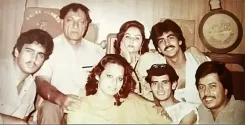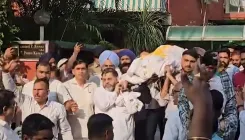Did NHRC Intervene in the Torture Case of a Minor in Gujarat's Rajkot?
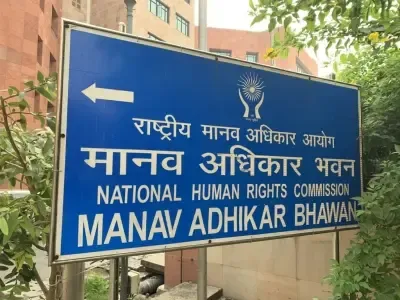
Synopsis
Key Takeaways
- NHRC has taken action on reports of police torture.
- A 17-year-old boy was allegedly tortured in custody.
- Investigation initiated following the emergence of a disturbing video.
- The boy was previously detained in connection with a stabbing incident.
- Significant concerns regarding human rights violations have been raised.
New Delhi, Oct 15 (NationPress) The National Human Rights Commission (NHRC) has initiated suo motu action following a media report detailing the alleged torture of a 17-year-old boy in police custody at the Gandhigram Police Station located in Rajkot district, Gujarat.
The shocking incident was brought to public attention more than a month later, on October 6, when a disturbing video appeared on social media.
As per the media report published on October 7, the video shows a police officer forcibly pulling the boy's hair, while other officers can be seen laughing.
The minor was taken into custody on the night of September 1, following a stabbing that occurred a day earlier. He and his companions were detained and subsequently presented to a juvenile court, which ordered his remand to a juvenile detention facility.
After approximately two weeks, he was released on bail.
Upon reviewing the case, the NHRC expressed that if the allegations are substantiated, they raise grave concerns regarding the violation of the boy's human rights.
The NHRC has sent notices to the Gujarat Director General of Police (DGP), demanding a comprehensive report on the situation within a two-week timeframe.
Founded under the Protection of Human Rights Act, 1993, the NHRC serves as an independent statutory body dedicated to the promotion and safeguarding of human rights.
Its main objective is to uphold and promote human rights, which are defined as the rights to life, liberty, equality, and dignity guaranteed by the Constitution or articulated in international treaties and enforceable by courts in India. The NHRC possesses the authority to act suo motu (on its own initiative) based on media reports, public awareness, or other sources, without the need for a formal complaint regarding human rights abuses.

